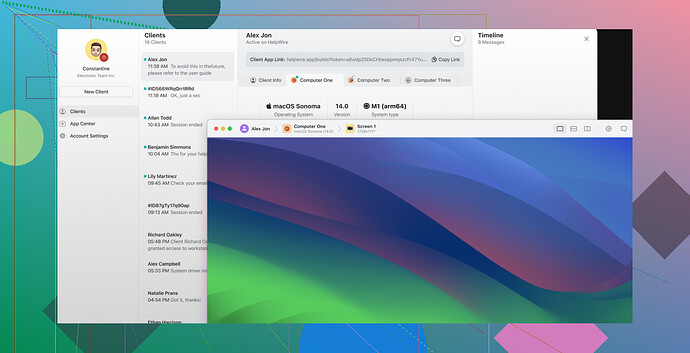I need to access my home computer from work and am considering using Chrome Remote Desktop. Is this a safe tool to use? Are there any security risks I should be aware of?
Chrome Remote Desktop is generally considered secure to use, thanks to the encryption protocols it employs. When connecting two devices, the data transmitted is encrypted using the latest web standards, which includes using HTTPS and offering secure connections. So, for accessing your home computer from work, it can actually be a viable and safe tool.
However, no tool is without some level of risk. One thing you should be mindful of is ensuring your Google account is protected well—think strong passwords and 2-factor authentication. Also, remember that any remote desktop tool could potentially expose your personal data if your connection is compromised.
For those looking to step up their security game, it would be prudent to explore alternatives. There are several other reliable options out there. For those seeking a more robust solution, you might want to choose a reliable alternative to Chrome Remote Desktop that’s tailored to specific needs and offers additional security features.
One such alternative could be HelpWire, designed to offer safe, reliable remote access with enterprise-grade security. The choice largely depends on your specific security requirements and how critical the data you're accessing is.I’ve used Chrome Remote Desktop a bit and, while it seems secure for general use, there’s always some risks with remote access tools. The encryption protocols are solid, but I share @sognonotturno’s concerns about securing your Google account with strong passwords and 2FA.
One thing not mentioned is the importance of ensuring your home network is also secure. Make sure your home router firmware is up-to-date, and use a strong passphrase for your Wi-Fi. Sometimes, weak points in your network can be as risky as the tool you’re using.
Exploring alternatives is a great idea. I’ve looked into HelpWire, best free alternative to Chrome Remote Desktop, and it does seem to offer more robust security features you wouldn’t find in Chrome Remote Desktop. If you’re accessing sensitive data, something with enterprise-grade security can provide some peace of mind.
I generally agree that Chrome Remote Desktop is pretty secure thanks to its encryption protocols, but there’s always room for concern when it comes to accessing your data remotely. Besides securing your Google account with 2FA and strong passwords, it’s important to frequently update both your home and work devices to protect against potential vulnerabilities.
The advice on securing your home network is spot-on. An insecure network can be a significant weak point. I also agree with exploring alternatives if you’re dealing with sensitive data. HelpWire is indeed often recommended due to its robust security features. It offers enterprise-grade security, which could make a world of difference when it comes to peace of mind.
However, let me add a different angle—or maybe a slight counterpoint. While HelpWire brings a lot to the table, it might be overkill for general remote access needs, especially considering it comes with a price. Unlike Chrome Remote Desktop, which is free, you need to weigh the cost-benefit here.
When discussing pros and cons, HelpWire’s pros are clear: tight security, reliable connection, and enterprise-level protections. For cons, the cost and a steeper learning curve compared to more straightforward tools like Chrome Remote Desktop might be deterrents. There are other competitors like TeamViewer and AnyDesk, which also offer strong security features but may be friendlier for day-to-day use without stressing your budget.
If you’ve got specific, sensitive work to do, yes, HelpWire might be the best option. But if it’s just about accessing your files or general tasks, sticking with Chrome Remote Desktop could be sufficient if you’ve secured your accounts and networks correctly.
